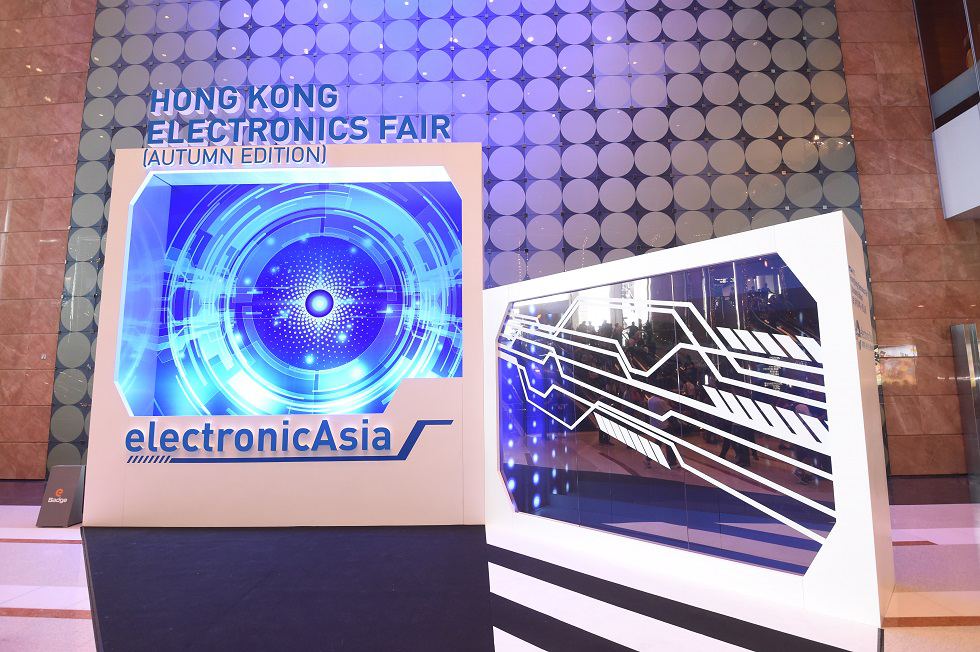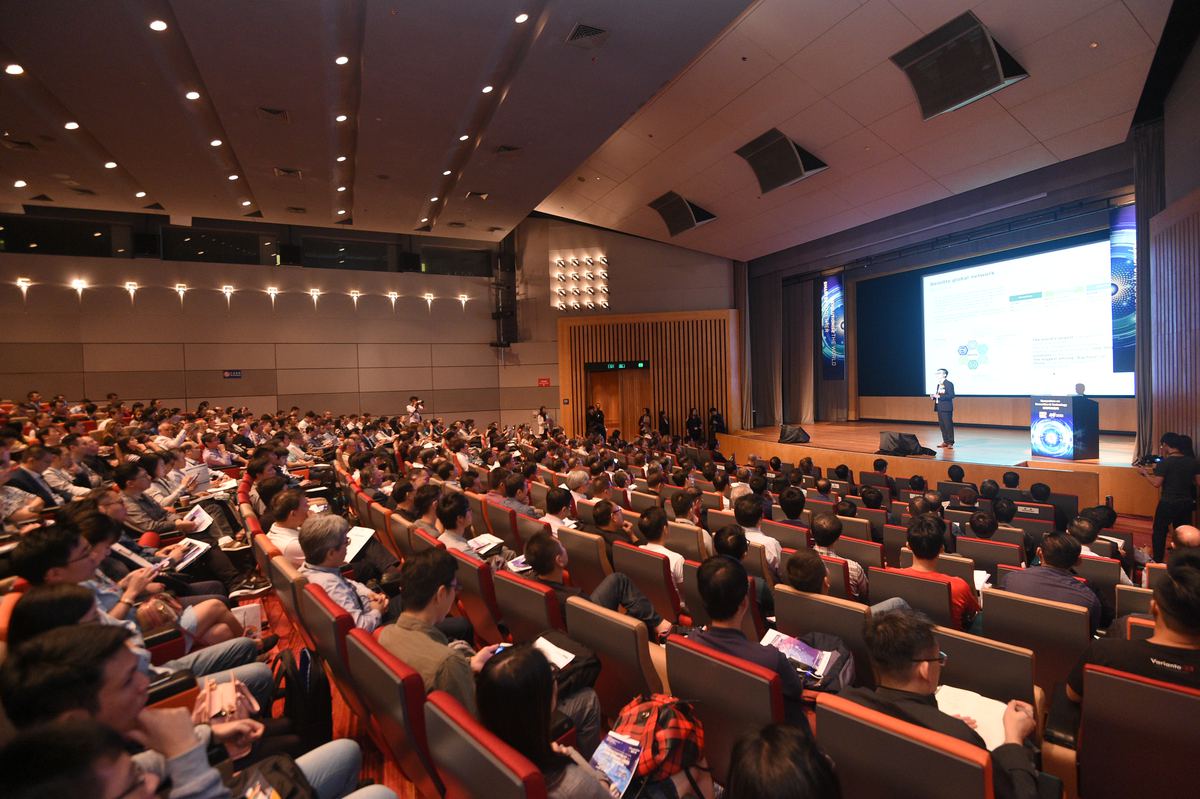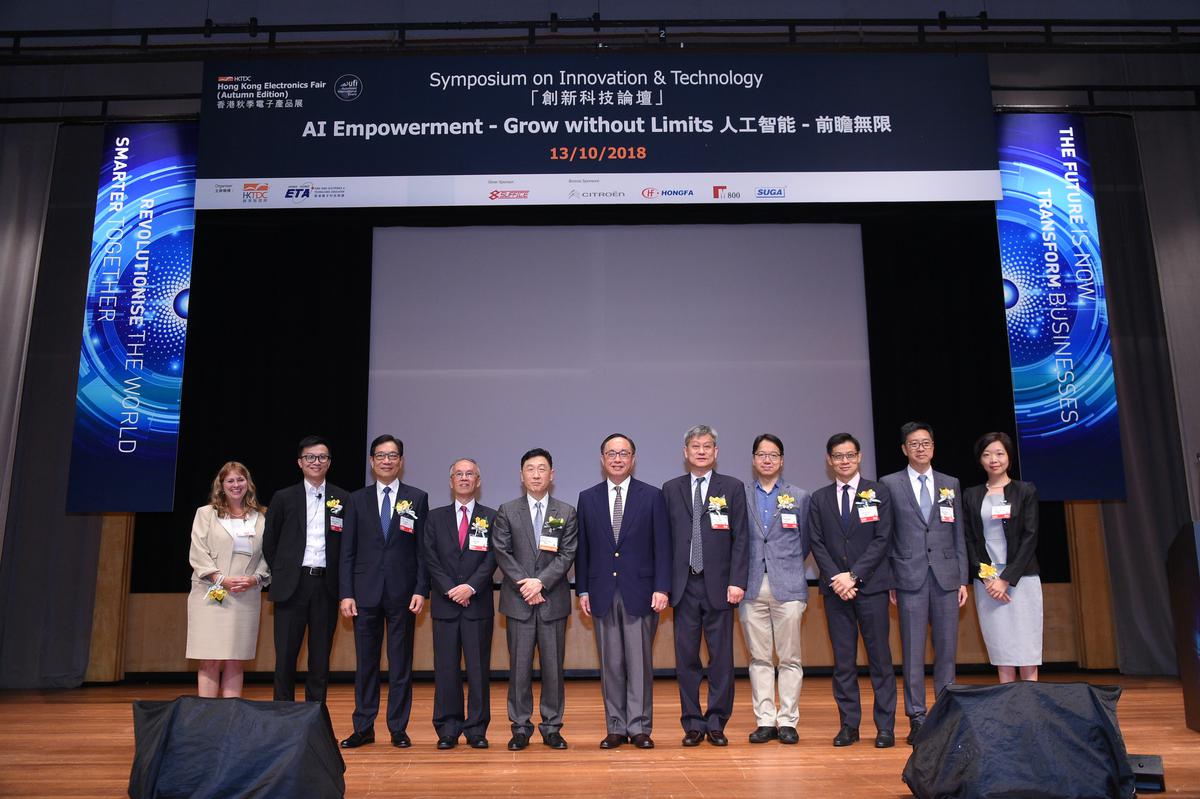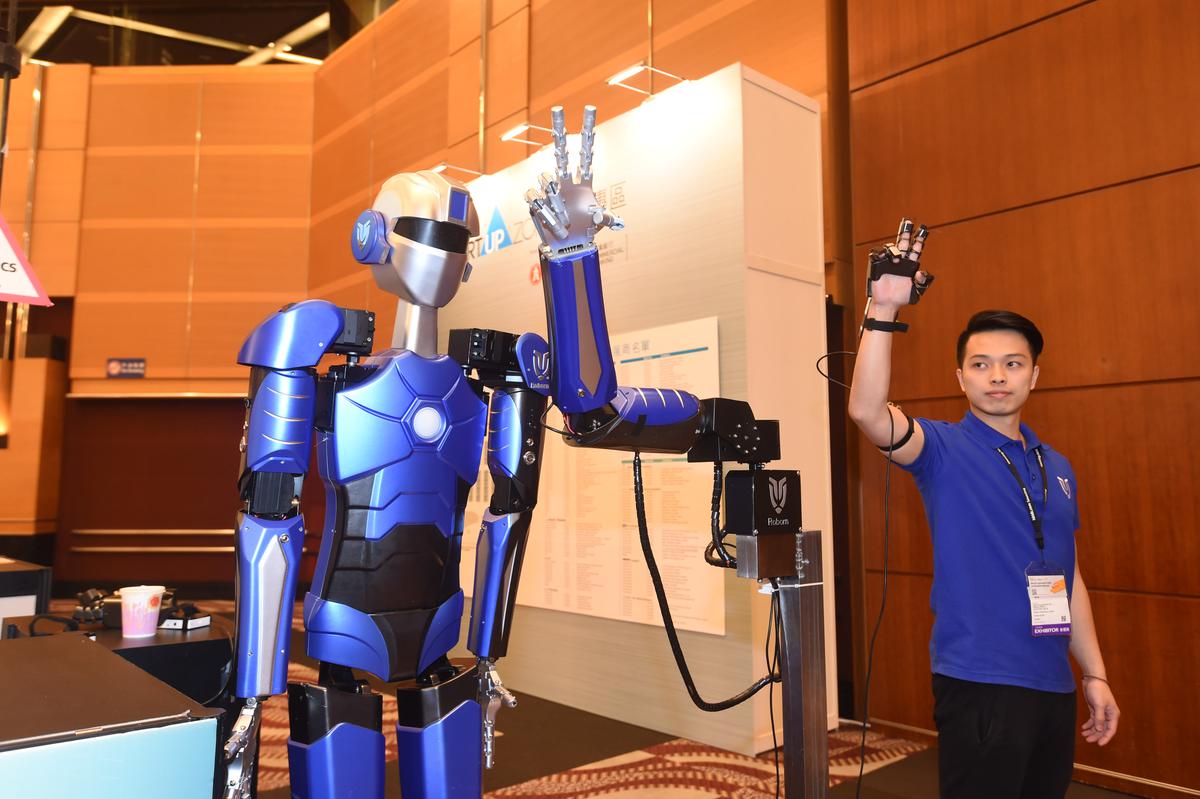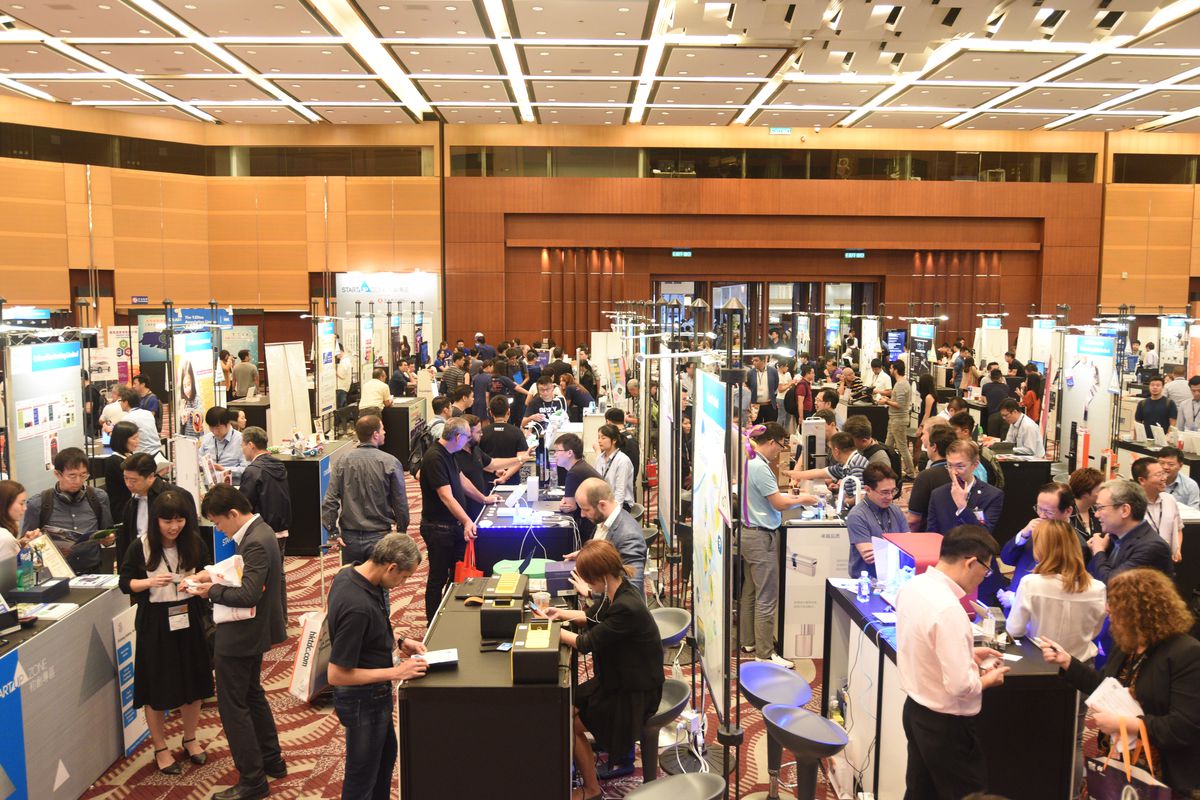The 38th HKTDC Hong Kong Electronics Fair (Autumn Edition) and the 22nd electronicAsia has recently concluded, attracting close to 87,000 buyers from 139 countries and regions. Buyer attendance tremendously grew including markets such as Canada, Italy, Singapore, Taiwan and the UK, and emerging markets such as Brazil, the Chinese mainland, India, Indonesia, Malaysia and Russia. More than 63,500 buyers visited the Autumn Electronics Fair while over 23,400 visitors attended electronicAsia.
The four-day Electronics Fair was organized by the Hong Kong Trade Development Council (HKTDC), while electronicAsia was jointly organized by the HKTDC and MMI Asia.
HKTDC Deputy Executive Director Benjamin Chau said: “In the face of global economic uncertainty, Hong Kong companies are pushing to strengthen R&D and develop new technologies in a bid to launch innovative electronic products. At the two fairs, we saw how they are successfully applying advanced technologies such as artificial intelligence (AI) and augmented reality (AR) to a wide range of electronic products, attracting the attention of global buyers. Thematic zones at the fairs, such as the Tech Hall and Hall of Fame, helped to meet the needs of the industry while a series of events at the Autumn Electronics Fair helped to introduce the products and technologies of start-up companies to potential buyers, partners, investors and the media, assisting them to capture new business opportunities.”
The HKTDC commissioned an independent survey during the fair period, interviewing a total of 1,043 exhibitors and buyers on the outlook for the electronics market and new product trends. Some 60% of respondents said the recent Sino-US trade friction has had a negative effect on their export performance. Around 40% of respondents said they expect their company’s overall sales to grow this year – 13 percentage points lower than the proportion that gave the same response in 2017. In terms of markets with growth prospects, survey respondents view Japan as the most promising traditional market, followed by South Korea and Western Europe, while the Chinese mainland, Middle East and ASEAN countries are seen to have the best prospects among emerging markets.
In terms of product trends, the survey reveals that at 17%, audio-visual products have the most growth potential in 2019, followed by electronic/electrical accessories at 14% and digital imaging at 9%. For AR and virtual reality (VR) devices, almost 80% of respondents are optimistic about the market development in the next two years, while 57% of the respondents think that mobile and online games have the largest market potential. 45% of them sated that audio-visual entertainment devices will also flourish.
For robotics applications, 67% of respondents say they are optimistic about market developments in the next two years, with entertainment purposes such as toy robots (40%) having the largest market potential, followed by home applications such as vacuum cleaners (36%) and medical applications such as rehabilitation treatments (24%).
Spotlighting AI and Other Innovations
Featuring five thematic zones, the Tech Hall at the Electronics Fair showcases products under Robotics & Unmanned Tech, Smart Tech, Virtual Reality, 3D Printing and Startup zones. First-time exhibitor Tuya Global showcased its AI solutions for smart home appliances and lighting products, hoping to expand its overseas markets. Business development manager of Tuya Global, Morgan Fang, said: “Many buyers
want to upgrade their traditional products into smart products. We established connections with new buyers from Europe, North America and Southeast Asia during the fair and are now discussing cooperation plans.”
Taiwanese start-up exhibitor Serafim Technologies showcased a virtual laser projection keyboard that attracted a lot of attention from buyers. GZ Chen, CEO of the company, said they have met with new buyers from Hong Kong, the Chinese mainland, Southeast Asia, Germany, Italy and Russia, and have secured orders for a total of 5,000 sets. He said the business results from the fair were very
encouraging.
Under the theme “AI Empowerment – Grow without Limits”, the Symposium on Innovation & Technology featured representatives from the Hong Kong Applied Science and Technology Research Institute (ASTRI), Cisco, Deloitte, IBM, Microsoft, Pfizer and SenseTime. They discussed how AI can empower organisations and affect the employment picture, as well as some of the challenges associated with AI implementation.
